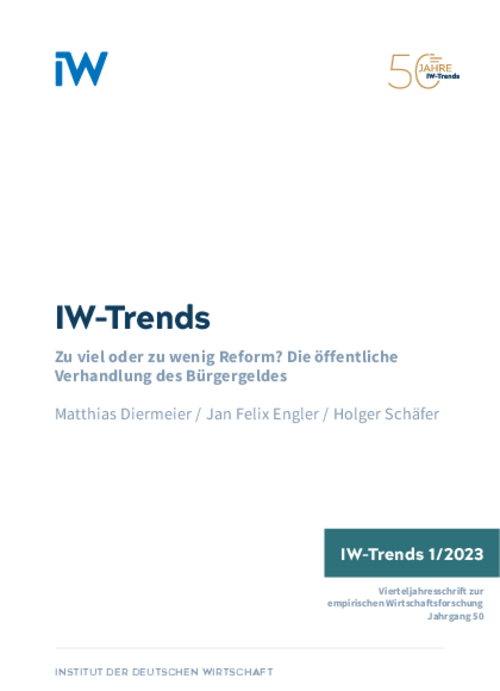Under its new name, Citizens' Benefit (Bürgergeld), Germany’s reformed unemployment benefit was supposed to put basic benefits for job-seekers on a new footing and fulfil the political promise to "overcome" its controversial predecessor known, after its original sponsor’s final proposal, as ‘Hartz IV’.

Too Much or Too Little Reform?: Public Discussion of the Revised Unemployment Benefit

Under its new name, Citizens' Benefit (Bürgergeld), Germany’s reformed unemployment benefit was supposed to put basic benefits for job-seekers on a new footing and fulfil the political promise to "overcome" its controversial predecessor known, after its original sponsor’s final proposal, as ‘Hartz IV’.
However, the approach taken to key issues in draft legislation opened up various fault lines in society, in the coalition government and even among party supporters: the level of the standard benefits, the design of sanctions, the value of exempted assets and the appropriacy of housing costs. The eventual political compromise contained little of the originally promised reform. The survey of individuals conducted by the German Economic Institute (IW) throws light on both the disappointment among Green and (centre-left) SPD supporters at the limited scope of the reform and the dissatisfaction of supporters of the liberal FDP with the easing of eligibility conditions. Indeed, on key issues, the latter party was only surpassed by the right-wing AfD supporters in their criticism of the extent of the reform. In the end, only among Green and SPD supporters were there majorities in favour of the changes, and overall public approval of the new benefits remains extremely modest at around one-third. An additional analysis of posts on the social networking service Twitter reveals lively criticism of the Citizens' Benefit online. The most intense discussion concerned the potential negative impact of a higher level of benefit on incentives to work. While FDP politicians were restrained in their remarks, the welfare-chauvinist tweets from the ranks of the AfD found a considerable echo – though the party was unable to spark a wider discussion on the issue of migration.

Too Much or Too Little Reform?: Public Discussion of the Revised Unemployment Benefit

More on the topic

Determinants of personnel planning in Germany
The German labor market has been growing since 2005. The dip in the wake of the coronavirus pandemic between 2020 and 2022 is an exception, as the German labor market has reached a record level of 45.9 million people in employment by 2023.
IW
What factors influence the career ambitions of people with disabilities?
Many companies in Germany report having difficulties not only in recruiting employees, but also in filling vacant management positions.
IW